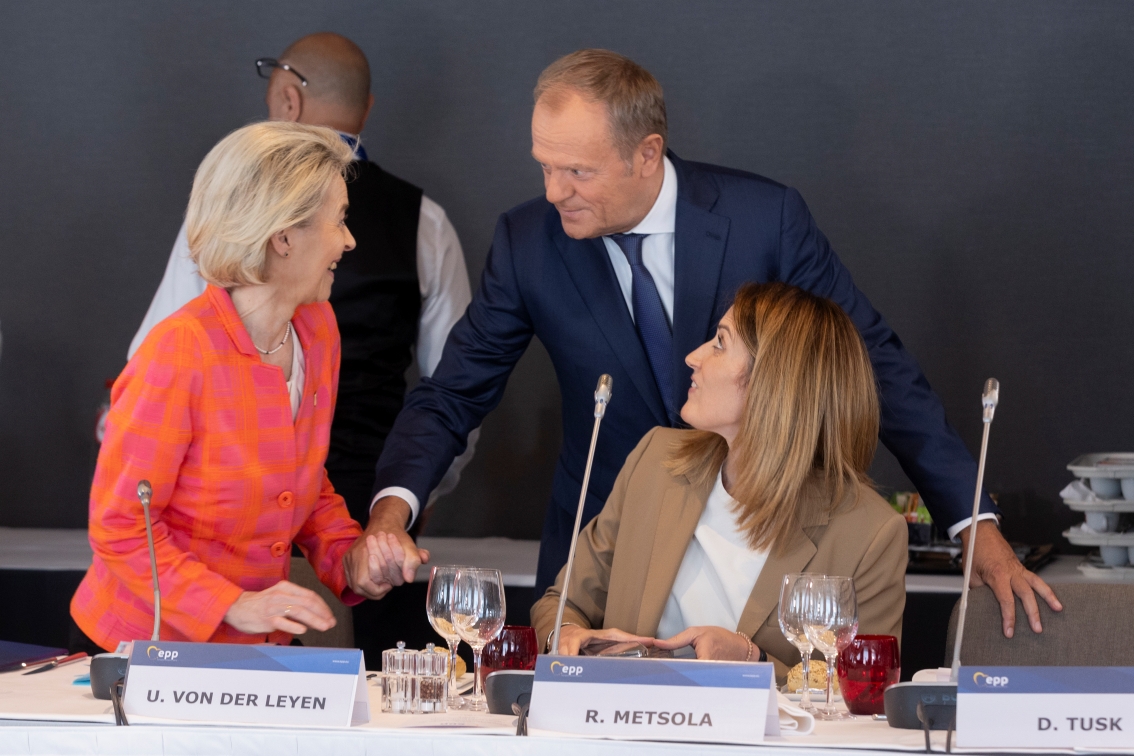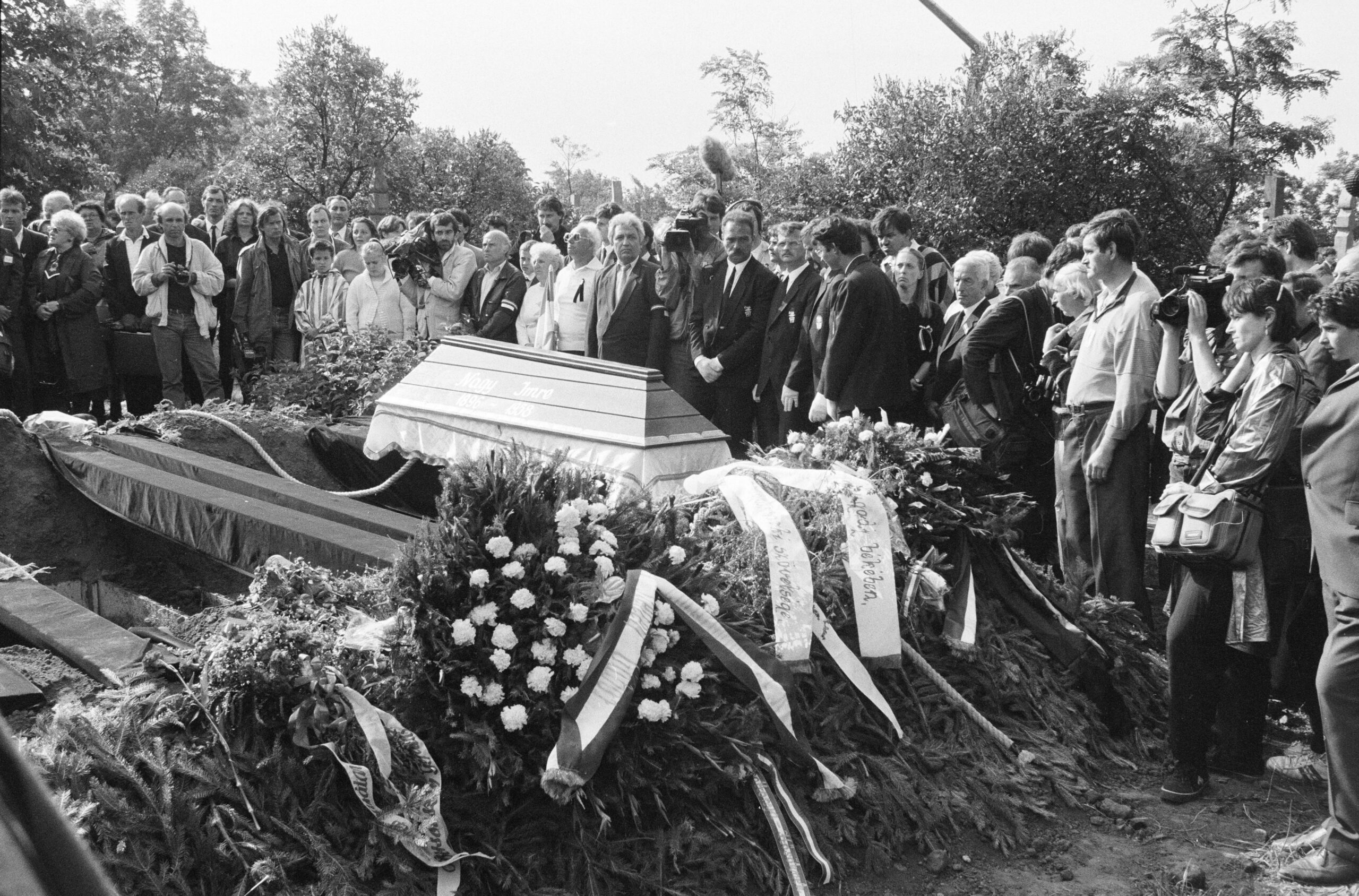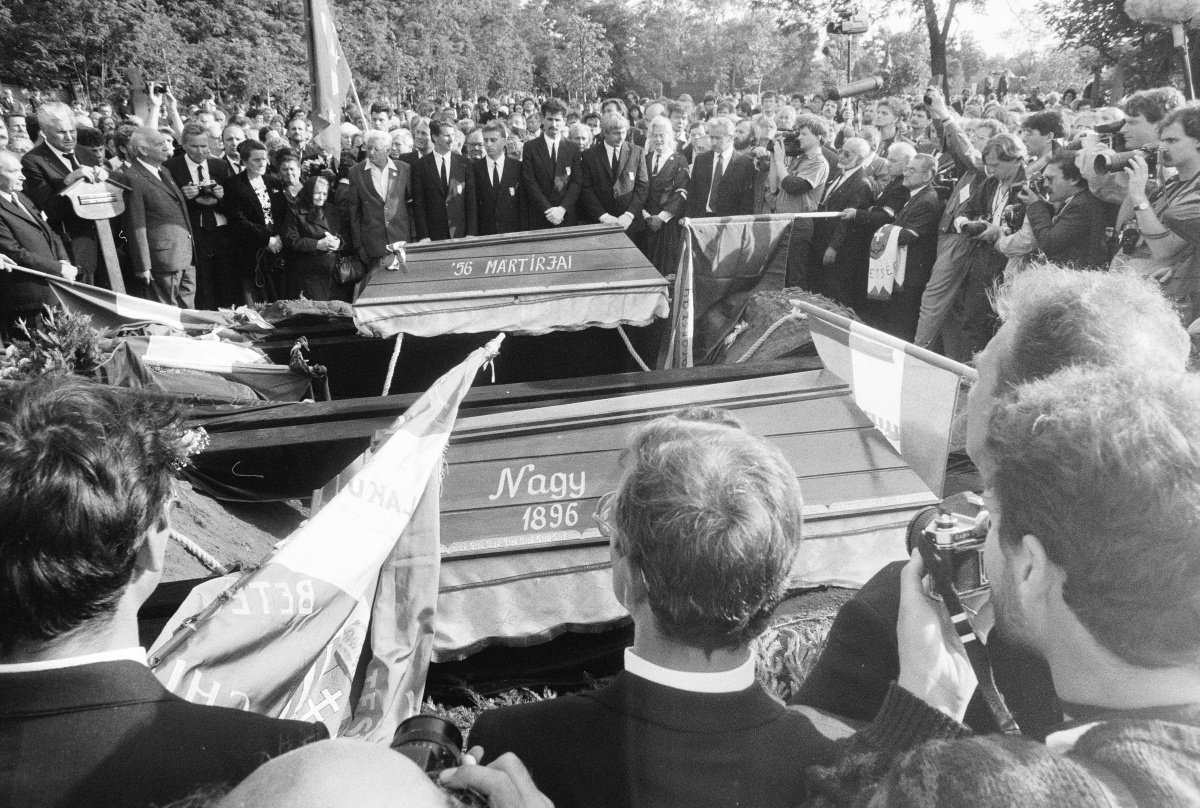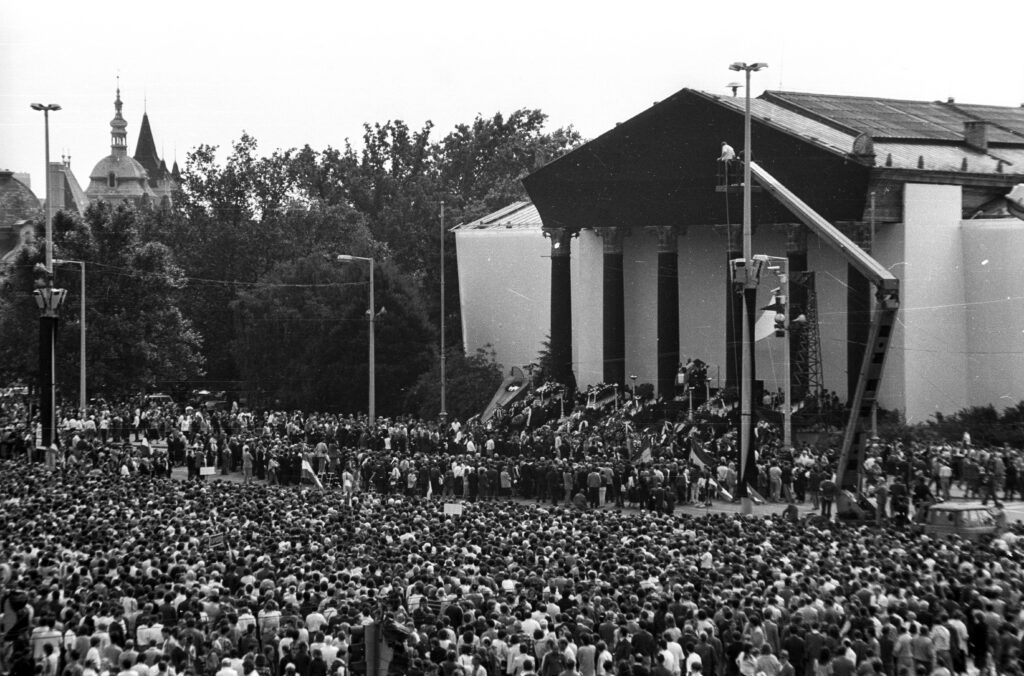
Donald Tusk's left-wing government had been accused of trampling on political rights and free speech.Continue reading

Today, courage is still needed to remain free, the Prime Minister said on Monday, remembering the martyrs of 1956. In a video shared on his Facebook page, Viktor Orbán, together with Tamás Deutsch, member of the European Parliament, and Zoltán Rockenbauer, former Minister of National Cultural Heritage, recalls his speech delivered on June 16, 1989, at the reburial of Imre Nagy and his fellow martyrs.
The Prime Minister wrote the following caption to the video: “Then and now. In 1989, we had to send the Russians home so that we could be free. It took great courage to do so. Today, we still need courage to remain free. Empires come and go, but we will not run away.”
Recalling the origins of his 1989 speech, Viktor Orbán said that it had been suggested that he should not speak at the reburial, as he had also given the speech on March 15, and the power of a political organization cannot depend on a single person. The counterargument was that 200-300,000 people would be present at Budapest Heroes’ Square on June 16, and it was not certain that the speech would be successful, but since he had done it once before, he would do it again.
During the 1956 Hungarian Revolution, he advocated for a free multiparty system, Hungary’s withdrawal from the Warsaw Pact, and the country’s declaration of neutrality. After Soviet forces crushed the revolution on November 4, 1956, Nagy sought asylum at the Yugoslav Embassy in Budapest. He was later captured by the Soviet-backed regime and ultimately executed.
The re-examination of his case in 1989 led to all charges being dismissed as unfounded. His symbolic reburial that same year became a pivotal moment in Hungary’s transition to democracy.

Photo: Fortepan / Horváth Péter
Orbán also recalled that they were considered too young in politics, to which he replied at the time that
since democracy was just beginning, everyone was the same age, as the others “knew just as much about democracy as we did.”
Regarding the circumstances surrounding the speech, he said that they saw it as an opportunity to say important things that they meant seriously in front of the whole country and the world. They did not consider whether the speech should be radical or not, as they saw it as a once-in-a-lifetime opportunity, a chance to speak out that might never come again, he said.

Commemorative ceremony held for the reburial of Imre Nagy and his fellow martyrs in Budapest, Heroes’ Square, on June 16, 1989. Photo: Fortepan / tm
He also mentioned that the text was reviewed by János Gyurgyák, with whom he edited the magazine Századvég. Gyurgyák suggested that they make a respectful gesture at the end, bowing their heads before the martyrs.
Orbán, president of Fidesz, pointed out that what he said was not the original speech, but a longer one that he had written with the current Speaker of the Parliament, László Kövér. Historian György Litván wanted to ask for the speech before it was delivered, but Orbán did not give it to him. At the same time, he shared with the historian that he would urge the Russians to go home.
The Prime Minister’s words revealed that Litván was not happy about this and asked if it was necessary to say this at this particular moment. Meanwhile, he also had concerns about the length of the speech, considering seven minutes to be too long. Kövér did not agree with shortening the speech and hung up the phone, saying, “I am not going to tutor you anymore,” Orbán recalled, who ultimately wrote a completely new speech.
He also talked about how Imre Nagy and his followers were communists, hence it was necessary to explain how Fidesz came to be involved in the reburial.
That is why his speech included the sentence that they learned from their fate that democracy and communism are incompatible.
The Prime Minister said that
there was a “big communist campaign” against them because the speech was considered to be disrespectful.
He noted it was clear that the system was coming to an end when the authorities admitted that they had murdered the martyrs of 1956. On that day, the communist system in Hungary collapsed. He added that it was obvious that Imre Nagy was a victim, and therefore János Kádár, who had him hanged, was rather a murderer.
In the video, Orbán assessed that this was not simply an event in the change of regime, but the moment when the system morally collapsed.
Via MTI, Featured image: Fortepan / Horváth Péter